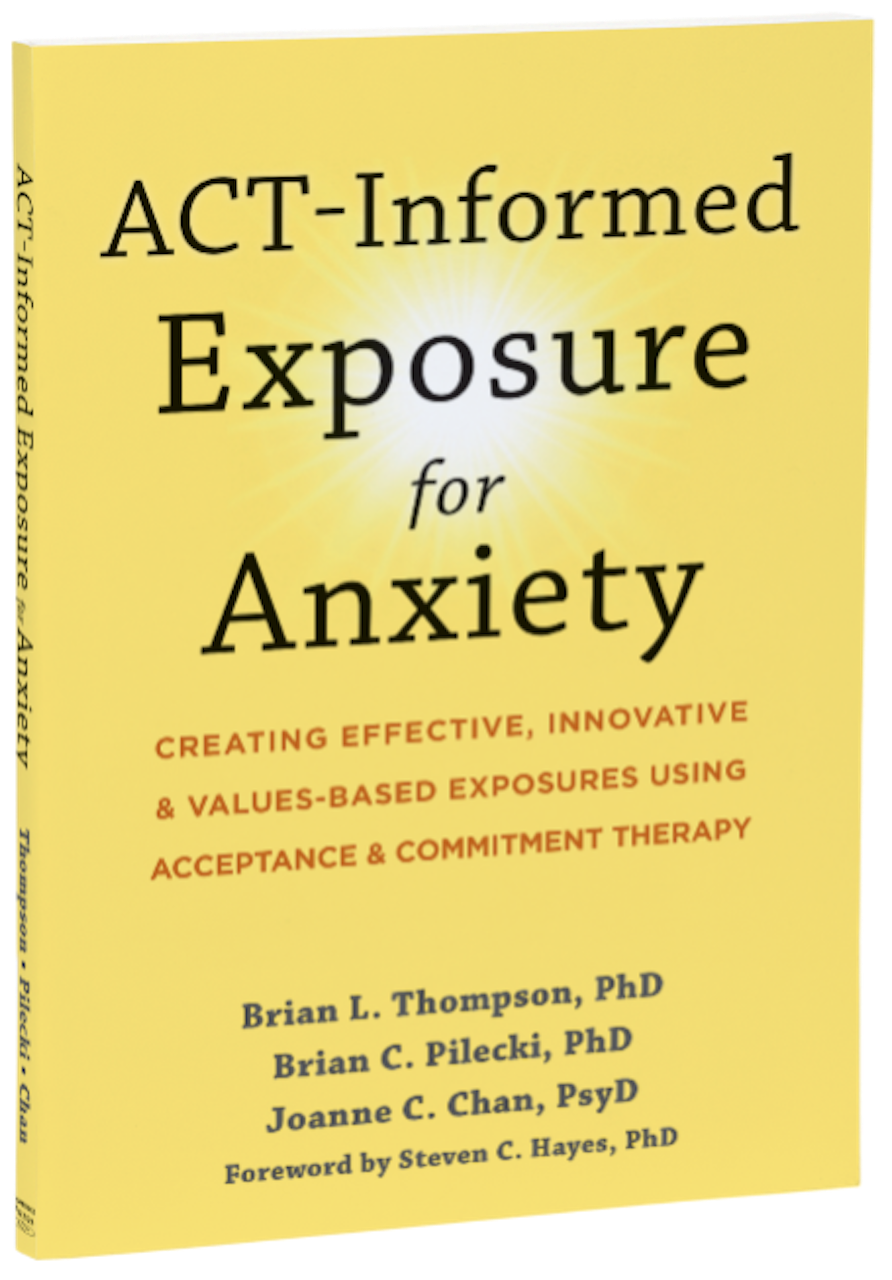Increasing Flexible Perspective-Taking Is Important when Treating OCD
Apr 06, 2023
Our minds are constant thought-generating machines. If we pay attention, we have all sorts of thoughts that, in isolation, may seem strange or uncomfortable. Have you ever noticed fleeting images of stabbing someone or stepping in front of traffic? Most of the time, we barely notice these thoughts, and if we do, they pass quickly. Someone prone to OCD, however, is likely to take them more seriously. That is, people with OCD may believe their intrusive thoughts reflect who they are as a person rather than fleeting thoughts that are common to most everyone (Radomsky et al., 2014).
In acceptance and commitment therapy (ACT), flexible perspective-taking (aka self-as-context) is one of the core ACT psychological flexibility processes. When people struggle with perspective-taking, they may have difficulty viewing their experiences with some distance and objectivity. They may fuse with unhelpful thoughts (“I’ll never get better”) and even a fixed sense of identify (“I’m just an anxious person”).
A recent study by Thompson (no relation) and colleagues (2022) found that flexible-perspective taking appears to be a particularly important ACT process in people with OCD symptoms. Low self-as-context was associated with increased unacceptable thoughts and feelings contaminated by thoughts. This is not surprising given what we know about OCD, but this is the first study to really capture the importance of the ACT process self-as-context in OCD symptoms.
I was excited when I came across this study, as I think self-context is a particularly important process in exposure therapy that’s largely been neglected. As I wrote about in my therapist guide on ACT-informed exposure, one benefit of exposure therapy—whether for OCD or any other anxiety or obsessive-compulsive and related disorder—is that through the repetition of exposure, clients can increase flexible perspective taking in expanding how they experiences thoughts and feelings.
The repetition of exposure provides an incredible opportunity for clients to experience self-as-context. Imagine watching a scene from a movie repeatedly. During our first viewing, we may be engrossed in the story of it, of trying to figure out what’s going on. With repeated watching, we start to notice other things that are happening. We hear the swell of the score or ambient background noises. We may notice the transition of one edit to the next or become aware that a scene happens in one continuous take. We can marvel at the subtlety in the actors’ performances. Repetition frees us from the focus on the story because we already know what happened—now we can observe how it happens. The beauty of exposure is that repetition does the job for you. There’s no need to try to explain self-as-context to clients.
Through exposure, clients develop a broader and more expansive view of their internal experience. In sum, they strengthen self-as-context, which, as it turns out, is pretty important in OCD work.
If you want to learn more about the relevance of self-as-context to exposure therapy, feel free to check out our book on ACT-informed exposure.
Author: Brian Thompson, PhD
ACT-informed Exposure Therapy is out May 1, 2023. Click here to pre-order!
If you liked this post, check out Dr. Thompson's workshop on ACT-Informed Exposure this April: A Practical Guide to Applying ACT-informed Exposure
Learn more about our live, virtual, and accredited courses from the best minds in evidence-based therapy and Acceptance & Commitment Therapy (ACT), brought to you by Portland Psychotherapy Training.
Join our mailing list!
Subscribe and get curated research reports, essays, and special course offers – right to your inbox.
We hate SPAM. We will never sell your information, for any reason.


